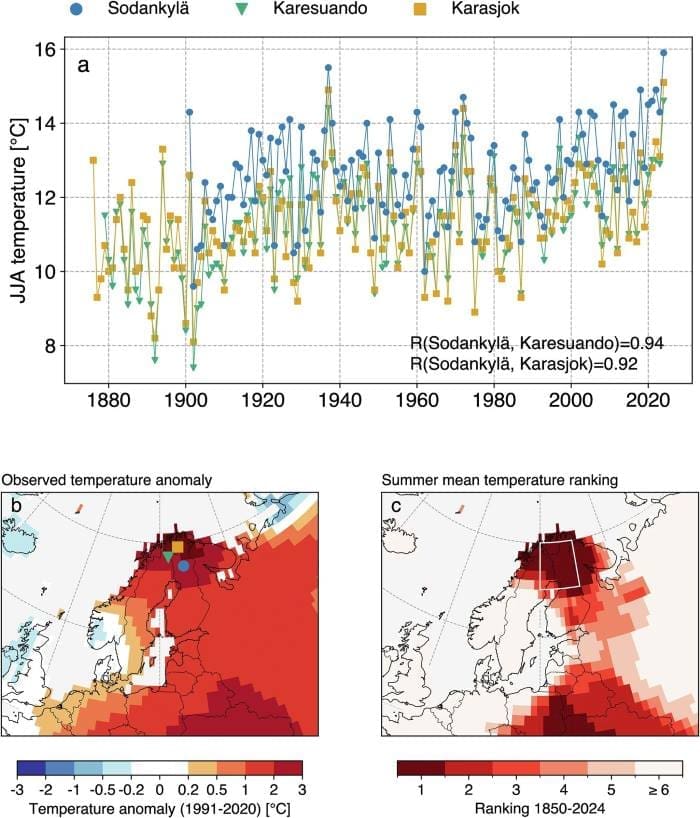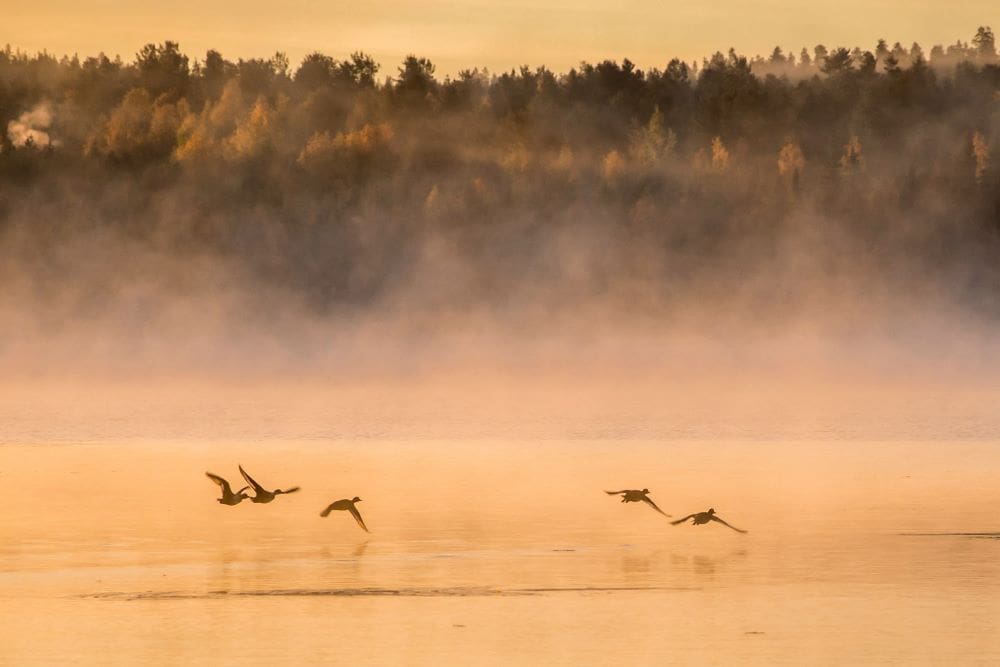Helsinki, Finland | AFP | Muser NewsDesk
The summer of 2024 was the warmest in 2,000 years in the Lapland region of northern Finland, Norway and Sweden, driven by climate change, the Finnish Meteorological Institute told AFP on Monday.
“Last summer’s average temperature in Lapland, or northern Fennoscandia, was the highest in both direct observations which we have from the late 1800s onwards and so-called indirect tree ring observations, of which the longest time series extends to 2,000 years ago,” Mika Rantanen, researcher at the Finnish Meteorological Institute, told AFP.
He cited a study carried out by the Meteorological Institute and the Natural Resources Institute in Finland, published in US scientific journal npj Climate and Atmospheric Science, showing that the summer of 2024 in the northern Finnish town of Sodankyla had been around 2.1 degrees Celsius warmer as a result of human-caused climate change.

The mean temperature of 15.9 °C between June and August 2024 broke the previous record dating back to 1937 by 0.4 °C.
Climate change increased the likelihood of such exceptionally warm summers by around a hundred times, the study estimated.
“If it were not for climate change, the previous summer would have been a very, very rare event, occurring about once every 1,400 years,” Rantanen said.
“In the current climate, however, such a summer is likely to reoccur every 16 years,” he added.
Rantanen warned the region stretching over the northern areas of Finland, Sweden and Norway and parts of Russia was moving “beyond the natural range of variation” due to the soaring temperatures in the area.
This was resulting in consequences such as more frequent heatwaves, forest fires and an increased greening of the tundra bringing irreversible changes to the sensitive Arctic ecosystems and its local populations.
Compared to other parts of the globe, the Arctic region is warming four times faster since 1979, according to a study published in Communications Earth & Environment in 2022.
“We found out that in 2050, a summer as warm as the one we had last year would be so common that it would happen every four years. This warming will continue unless these global climate emissions can be limited,” Rantanen said.
ank/po/jm
© Agence France-Presse
Journal Reference:
Rantanen, M., Helama, S., Räisänen, J. et al., ‘Summer 2024 in northern Fennoscandia was very likely the warmest in 2000 years’, npj Climate and Atmospheric Science 8, 158 (2025). DOI: 10.1038/s41612-025-01046-4
Article Source:
Press Release/Material by AFP
Featured image credit: Jaakko Kemppainen | Unsplash




